
Advances in Applied Energy
metrics 2024
Transforming Ideas into Sustainable Energy Practices.
Introduction
Advances in Applied Energy is an esteemed academic journal published by Elsevier, focusing on the dynamic and interdisciplinary field of energy applications. With its ISSN 2666-7924 and esteemed open access model initiated in 2021, this journal has rapidly emerged as a prominent platform for disseminating cutting-edge energy research, especially noted for its robust ranking as Q1 in Energy (miscellaneous) in 2023. Situated in the vibrant academic landscape of the United Kingdom, it serves as a global hub for thought leaders and innovators, evidenced by its impressive ranking as #3 out of 73 in the Scopus Ranks for General Energy, placing it within the 96th percentile in the field. This journal aims to foster collaboration, innovation, and knowledge transfer between researchers, professionals, and students, ensuring that critical advancements in energy technologies are readily available to a wide audience. Its commitment to high-quality research and accessibility further underscores its importance in shaping the future of sustainable energy solutions.
Metrics 2024
 3.79
3.79 13.00
13.00 13.10
13.10 33
33Metrics History
Rank 2024
Scopus
IF (Web Of Science)
JCI (Web Of Science)
Quartile History
Similar Journals

Energy Systems-Optimization Modeling Simulation and Economic Aspects
Advancing Knowledge in Energy Optimization and Economic Strategies.Energy Systems: Optimization Modeling Simulation and Economic Aspects is a premier journal published by SPRINGER HEIDELBERG, focusing on the intersection of energy systems, economic modeling, and simulation techniques. With an ISSN of 1868-3967 and an E-ISSN of 1868-3975, this journal caters to a diverse audience, including researchers, professionals, and students seeking to deepen their knowledge in the rapidly evolving field of energy economics and systems optimization. The journal holds an esteemed position in the academic community, with impressive Scopus rankings that place it in the top quartile for Economics and Econometrics, as well as Modeling and Simulation. The Q2 and Q3 quartile categorizations underscore its impact and relevance within these disciplines. Covering topics from algorithmic modeling to economic analysis in energy systems, the journal serves as a critical resource for those aiming to advance sustainable energy practices and policies. As of 2023, the journal continues to innovate and publish high-quality research, having opened its contributions from 2010 to 2024, thus maintaining a rich archive of knowledge for impactful energy solutions.
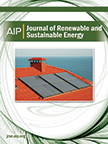
Journal of Renewable and Sustainable Energy
Advancing the Science of Renewable EnergyThe Journal of Renewable and Sustainable Energy, published by AIP Publishing, stands at the forefront of research in the fields of renewable energy and sustainable practices. With an ISSN of 1941-7012, this journal aims to foster innovative research and exchange of knowledge on sustainable technologies and methodologies that contribute to environmental conservation and energy efficiency. Achieving a prestigious Q2 ranking in the category of Renewable Energy, Sustainability, and the Environment, it ranks 135 out of 270 journals in Scopus, signifying its impactful contributions to the field. The journal, active from 2010 to 2024, provides a platform for authors, analysts, and practitioners to disseminate significant findings that can shape future environmental policies and energy frameworks. Although not currently an Open Access publication, it remains an essential resource for researchers dedicated to advancing sustainable development and energy solutions.

Progress in Energy
Catalyzing Change in Energy Efficiency and SustainabilityProgress in Energy, published by IOP Publishing Ltd, is an esteemed open-access journal that focuses on cutting-edge research in the field of energy. With its e-ISSN 2516-1083, this journal stands out for its commitment to disseminating high-quality articles that aim to advance the understanding and application of energy technologies and policies. Juggling respectably in the academic arena, it proudly holds a Q1 classification in the energy (miscellaneous) category and ranks 6th out of 73 in the general energy sector, placing it in the top 92nd percentile among its peers, according to Scopus metrics. The journal's scope encompasses a wide range of topics, including renewable energy, energy efficiency, and policy analysis, making it a vital resource for researchers, industry professionals, and students alike. With a publication horizon extending from 2019 to 2024, Progress in Energy invites contributions that push the boundaries of knowledge in energy fundamentals and innovations.
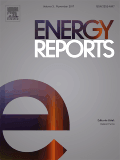
Energy Reports
Shaping Tomorrow’s Energy Policies Through Scholarly ExcellenceEnergy Reports, published by Elsevier, is a prestigious open access journal that serves as a vital resource in the field of energy research. Since its inception in 2015, this journal has swiftly ascended to become a key player in disseminating knowledge across various energy-related disciplines, evident from its impressive Q2 ranking in the miscellaneous category of Energy for 2023 and its notable position in the 78th percentile among over 70 journals in the general energy category, ranked 16th out of 73 on Scopus. Based in the United Kingdom, Energy Reports not only fosters innovative research but also promotes accessibility by providing open access to its articles, thereby ensuring that findings reach a global audience of researchers, professionals, and students. With a commitment to advancing sustainable energy solutions and technologies, Energy Reports plays a crucial role in shaping future energy policies and practices, making it an essential platform for scholarly communication in the ever-evolving landscape of energy research.

INTERNATIONAL JOURNAL OF ENERGY RESEARCH
Pioneering research for a sustainable energy landscape.INTERNATIONAL JOURNAL OF ENERGY RESEARCH (ISSN: 0363-907X; E-ISSN: 1099-114X), published by Wiley-Hindawi, stands at the forefront of energy research, offering a scholarly platform pivotal for advancing knowledge in the fields of energy engineering, nuclear energy, fuel technology, and renewable energy systems. With an impressive Q1 and Q2 ranking across several categories as of 2023, this journal reflects a commitment to high-quality, peer-reviewed research that addresses both theoretical and practical challenges in the energy sector. Now an Open Access journal since 2023, it enhances accessibility and dissemination of cutting-edge research to a global audience. Located in the United Kingdom, with an active publication history dating back to 1977, the journal aims to contribute to sustainable energy solutions and innovative technologies. Researchers, professionals, and scholars will find valuable insights and discussions here, bridging gaps in energy research and policy-making.
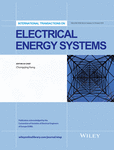
International Transactions on Electrical Energy Systems
Illuminating Pathways in Electrical Energy SystemsInternational Transactions on Electrical Energy Systems is a distinguished peer-reviewed journal published by WILEY-HINDAWI, focusing on the dynamic field of electrical energy systems. With an impactful reach, this journal, with ISSN 2050-7038, has established itself as a prominent resource for researchers and practitioners in electrical and electronic engineering, energy engineering, and power technology since its inception in 2012. As of 2022, the journal transitioned to an Open Access model, ensuring widespread accessibility to cutting-edge research and advancements. It is recognized for its strong academic standing, holding a Q2 quartile ranking across multiple disciplines, including modeling and simulation. The journal's Scopus ranks reflect its influence, with rankings in the 76th to 87th percentiles across various fields. The International Transactions on Electrical Energy Systems is dedicated to fostering innovation and encouraging collaboration within the energy community, making it an essential platform for knowledge dissemination and discussion.
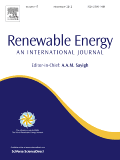
Renewable Energy
Pioneering Research in Renewable Technologies.Renewable Energy is a prestigious international journal published by PERGAMON-ELSEVIER SCIENCE LTD, dedicated to advancing the field of renewable energy technologies and their applications. Since its inception in 1991, this journal has provided a critical platform for researchers, professionals, and students to explore innovative solutions in renewable energy, sustainability, and environmental protection. With an impressive impact factor and ranked in the top quartile (Q1) of its category, Renewable Energy is recognized for its high-quality, peer-reviewed research that significantly contributes to the scientific and professional discourse in the sector. The journal is indexed in Scopus, holding an esteemed rank of #21 out of 270 in its field, underscoring its influence and reach. Researchers can access the journal’s articles through traditional subscriptions, ensuring a broad dissemination of vital knowledge that supports the global transition to sustainable energy sources. Addressed from its headquarters in Oxford, England, Renewable Energy is crucial for anyone involved in the journey towards a sustainable future, fostering collaboration and innovation in a critical area of environmental science.
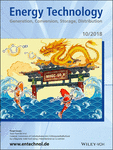
Energy Technology
Pioneering Insights into Renewable Energy AdvancesEnergy Technology, published by Wiley-VCH Verlag GmbH, is a prominent peer-reviewed journal dedicated to advancing the field of energy research and technology. With an ISSN of 2194-4288 and an E-ISSN of 2194-4296, this journal has made a significant impact in the energy sector, holding a Q2 category ranking in the Energy (miscellaneous) category for 2023, and proudly positioned in the 77th percentile within the Scopus ranking for General Energy. Since its inception in 2013, Energy Technology has consistently published cutting-edge research, innovations, and reviews that cater to a wide array of topics including renewable energy, sustainable technologies, and energy efficiency. The journal does not offer open access, yet it remains a key resource for researchers, professionals, and students who are committed to exploring the dynamic field of energy. The journal's efforts to disseminate rigorous scholarship make it an invaluable asset for anyone looking to contribute to or understand the future of energy-related technologies until 2024.
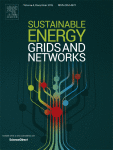
Sustainable Energy Grids & Networks
Connecting Ideas for Sustainable Energy ProgressSustainable Energy Grids & Networks, published by ELSEVIER, stands at the forefront of research in energy systems, contributing significantly to the fields of Control and Systems Engineering, Electrical and Electronic Engineering, and Energy Engineering and Power Technology. With an impressive impact factor, this journal is ranked in the top quartile (Q1) for key engineering categories, affirming its authority and influence within the academic community. The journal is dedicated to publishing high-quality research focused on the sustainable integration of energy systems and smart grid technology, which is crucial in addressing the pressing challenges of climate change and energy consumption. Although it operates on a subscription model, the rigorous peer-review process ensures that only the most innovative and impactful studies are disseminated, promoting advancements in renewable energy and sustainability. As a critical resource for researchers, professionals, and students, Sustainable Energy Grids & Networks provides a platform for the exchange of ideas that drive the future of sustainable energy solutions, fostering collaboration and knowledge-sharing across disciplines.

Frontiers in Energy
Exploring the Future of Energy Through Groundbreaking Research.Frontiers in Energy is a distinguished journal published by HIGHER EDUCATION PRESS, focusing on the dynamic and rapidly evolving field of energy engineering and power technology. Established in 2011, the journal serves as a pivotal platform for disseminating innovative research findings and practical applications that address critical challenges in energy systems. With an impressive Q2 ranking in 2023 and a Scopus rank of 81 out of 272 in the discipline, it highlights the journal's influential impact within the academic community, reflecting its commitment to high-quality research. Based in Beijing, China, the journal aims to promote open and accessible scientific discussion, facilitating collaboration among researchers, professionals, and students alike. As an open access publication, Frontiers in Energy ensures that valuable knowledge is readily available to a global audience, effectively contributing to advancements in sustainable energy solutions. Join the forefront of energy innovation by engaging with cutting-edge research that shapes our energy future.